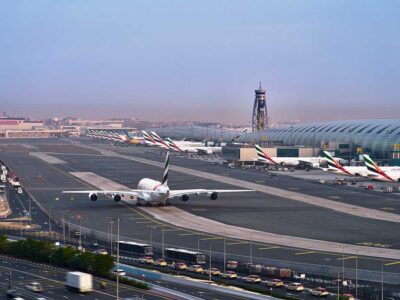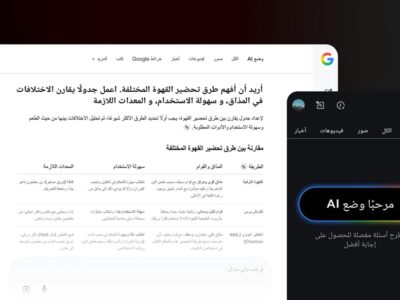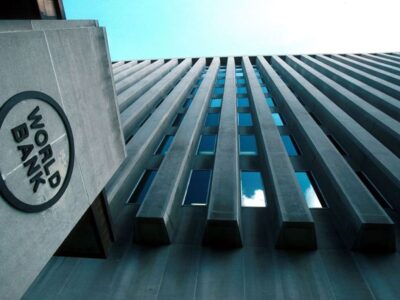One of the qualities of a good entrepreneur is being able to see opportunities in seemingly difficult situations.
Even in the most dire scenarios, there are some people who are able to pick out the one positive and turn it to their advantage.
When the financial crisis hit Dubai, Kashif Joosub was one of those people. While numerous businesses were closing their doors, unable to be sustained through the difficult economic downturn, he was able to launch Light House Studio – a purpose-built photography studio and production suite in Al Quoz.
“It was a really difficult time, but the positive thing about it was that people were willing to help,” he says.
“It was actually easier for me to start the business then. I went to the landlords and said ‘I’m setting up a new place – can you help me?’ They needed the work themselves – everybody needed business at that time – so they helped me out.
“The contractor who built the whole studio did me a big favour financially because they needed the work. Before the recession, all the costs would have been double and I would have had to pay it all straight up, but I didn’t have to at that time. It really started my career.”
Now, with two state-of-the-art studios catering for photography and video, equipment rental, and a series of talks, courses and workshops, Light House Studio has established itself as as a creative hub.
Launched in 2010, the studio offers a range of photography, including event, commercial, advertorial, fashion, wedding, corporate, and family portraits, as well as being home to pre and post production capabilities, and a whole host of other services.
Not bad for a man who arrived in Dubai trying to make it as a computer engineer. And even better for a man who didn’t take up photography as a serious concern until relatively recently.
Joosub says: “I studied computer engineering in South Africa and moved to Dubai after that, ten years ago when I was 21 years old. I was looking for a job in that field, but it was very difficult at that time. I had no experience and I had just finished my studies.
“So I went to the American University of Sharjah to study business, and while I was there I joined the photography club.”
His interest in photography developed further during his time at the university, learning the technicalities, undertaking online courses, attending workshops, and teaching himself various disciplines.
And then paid work started to come in.
“Friends started to ask me to do photography for them – weddings as so on,” explains Joosub.
“From there it grew from a hobby to freelance jobs.
Article continued on next page…
“I got more clients, worked with a few different agencies, but still struggled for a few reasons – largely because I didn’t have enough equipment. I had to invest a lot of time an money in what I was doing, and there was no studio I could use at that time.
“That’s when I started to think about setting up my own place.”
Saving up as much money as he could, Joosub approached recession-hit businesses with his proposal, aiming to cut as many costs as he possibly could. But regardless of a sound business plan, there were certain question marks for some people.
“I had a lot of thoughts about where to have my business, how to set it up, how to grow. I made a business plan and presented it to several people so they could see the financials and the potential of working together.
“But there were still some people who couldn’t see photography as a real job where you could make money. They saw it as just a hobby. It didn’t stop me from going for it.
“I started with two other staff. We did all the photography, rented out space and equipment to other people, and tried to build up the business. I was doing anything to get money coming in, and anything I earned I put back into the company to get more equipment and a better infrastructure.
“We had to work long hours, going through the night doing weddings or other events, and doing all the work back at the studio just to make sure everything got finished on time. But it was so important we kept the quality as high as possible – word of mouth is so important to us.”
Now established, the studio’s stock continues to rise, steadily attracting more work as photography becomes more popular in the region.
Joosub believes the current state of photography in the UAE is both encouraging and exciting, saying: “Many things are evolving fast.
“The Arab Spring pushed a lot of talented people in the region, so there’s a lot happening at the moment.
“As well as that we’ve got things such as the [Hamdan bin Mohammed bin Rashid al Maktoum International Photography Award], which a lot of photographers try to participate in, and that’s really motivating.
“That said, photography is still not where it needs to be in the region. There’s still a lot of red tape to work around. It’s hard to organise things sometimes, but it’s definitely getting better.
“The media industry in general is getting a lot of help at the moment, from the government and other places. Look at places like twofour54 in Abu Dhabi, and things like that. It’s really growing.”
Article continued on next page…
To help build the media community in the UAE, Joosub was keen to introduce and develop a series of workshops at Light House Studios, bringing experts to help people gain a better understanding of their craft and learn the latest techniques and how to best use their equipment.
He says: “We have a lot of people renting equipment but not knowing how to use it properly, so we often have to show them. That’s how we decided to bring in professional photographers with a lot of experience, and who are popular in the photography community.
“It also brings people together, which is a really important thing.
“For example, we’ve got Brett Florens, who is a Nikon brand ambassador and does a lot of workshops in the US, Europe, South Africa and other places. We brought him to Dubai last year and it was very successful, and we’ll be having him here in December as well.
“It’s good for us to have that association, and Nikon help by sponsoring us too, so it’s beneficial for everybody.
“The Nikon Nights Q&A session we did brought about 300 people together, which was brilliant. The workshops are much smaller – about 20 people – as they’re held in the studio and it’s better to have a smaller number so they can really get the benefit from it.
“We try to do a lot of different things. We did a workshop on wedding photography with Madinat Jumeirah. A designer gave us wedding dresses to work with so we could do the full thing, from the bride getting ready all the way through to the end. The people who attended learnt a lot – it’s especially important for weddings, as you have to get them right first time – there are no second chances.”
Giving so many people the benefit of this knowledge, and helping them become better photographers, is Joosub worried that he’s creating competition for himself?
Not really.
“There are a lot of new freelancers coming onto the scene as competitors, but I’m not really worried for the time being,” he says.
“I have higher expenses than them, but I have my clients who have certain needs that freelancers can’t always accommodate. I have these facilities at my disposal all the time, and we work hard to make sure our quality is always high, so I don’t see the new freelancers as competitors right now.”
That being so, Joosub is also quick to recognise the fact that photographers and videographers are able to find their feet in the marketplace much faster than they used to – something he aims to encourage rather than deter.
“When I came here as an engineer it was very hard to get work, and I didn’t want that to be the case for people coming to us,” he says.
Article continued on next page…
“We set up an internship programme to help young people come in and learn the ropes. The come in for one month while they have time left on their student visa and do the kind of work a full time member of staff would do. We give them a letter of recognition, and hopefully that helps them with their career.
“Employment is growing at a good pace, and we’re always looking for talented people. Three of our staff were interns who we kept on full time. People don’t always have the experience, but they have the knowhow and just need a push in the right direction. I could see that these guys really wanted to learn and bring in more business, and they had good energy too, which is very important.”
Having put in the leg-work to establish and build the studio, Joosub is now content to let his team take on the majority of the photography duties, admitting that he’s “more than happy” doing no more than one shoot per week.
“I love being around the studio, meeting more client, and making sure everything is running ok,” he says.
“There’s always plenty to do around here, especially as there’s more and more work coming in. When we opened the second studio, I was worried not enough work would come in but it did, and it’s doing really well now.
“We’re actually planning a third studio in a year and a half’s time.”
The company’s growth in just three years is something to be marvelled at, and looking back at his arrival in Dubai Joosub says he could never have imagined things would turn out this way.
He says: “I came to Dubai at 21-years-old. Being here was just meant to be an experience to enjoy. I didn’t think I’d be here for so long. I was just here to see what would happen.
“Seeing the growth in the early days was incredible. When it was booming, that’s when I decided to stay longer. Then the recession hit and it was really hard, but there were opportunities there if you looked for them.
“What’s important is that you push yourself that bit more than you thought you could. You have to encourage and motivate yourself as much as you can, and you’ll get there.”




